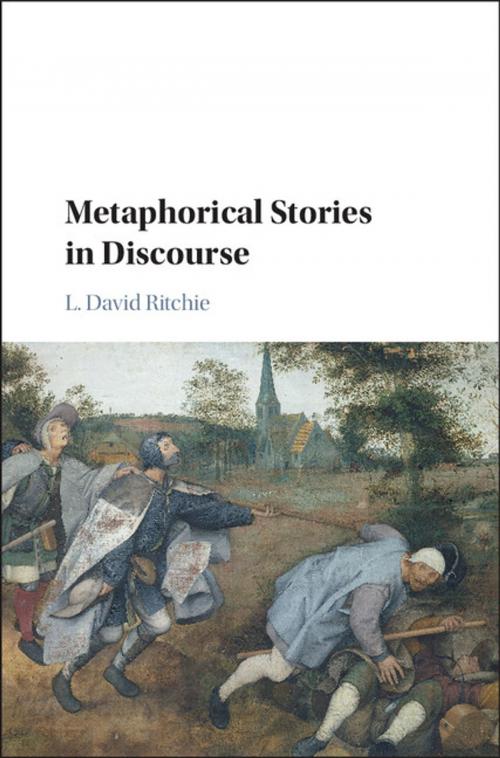Metaphorical Stories in Discourse
Nonfiction, Reference & Language, Language Arts, Linguistics, Reference| Author: | L. David Ritchie | ISBN: | 9781316733615 |
| Publisher: | Cambridge University Press | Publication: | September 14, 2017 |
| Imprint: | Cambridge University Press | Language: | English |
| Author: | L. David Ritchie |
| ISBN: | 9781316733615 |
| Publisher: | Cambridge University Press |
| Publication: | September 14, 2017 |
| Imprint: | Cambridge University Press |
| Language: | English |
When Hillary Clinton conceded in 2008 that she didn't quite 'shatter the glass ceiling', and when Rick Perry in 2012 called Mitt Romney a 'vulture capitalist', they used abbreviated metaphorical stories, in which stories about one topic are presented as stories about something entirely different. This book examines a wide range of metaphorical stories, beginning with literary genres such as allegories and fables, then focusing on metaphorical stories in ordinary conversations, political speeches, editorial cartoons, and other communication. Sometimes metaphorical stories are developed in rich detail; in other examples, like 'vulture capitalist', they may merely be referenced or implied. This book argues that close attention to metaphorical stories and story metaphors enriches our understanding and is essential to any theory of communication. The book introduces a theoretical structure, which is developed into a theory of metaphorical stories and then illustrates the theory by applying it to actual discourse.
When Hillary Clinton conceded in 2008 that she didn't quite 'shatter the glass ceiling', and when Rick Perry in 2012 called Mitt Romney a 'vulture capitalist', they used abbreviated metaphorical stories, in which stories about one topic are presented as stories about something entirely different. This book examines a wide range of metaphorical stories, beginning with literary genres such as allegories and fables, then focusing on metaphorical stories in ordinary conversations, political speeches, editorial cartoons, and other communication. Sometimes metaphorical stories are developed in rich detail; in other examples, like 'vulture capitalist', they may merely be referenced or implied. This book argues that close attention to metaphorical stories and story metaphors enriches our understanding and is essential to any theory of communication. The book introduces a theoretical structure, which is developed into a theory of metaphorical stories and then illustrates the theory by applying it to actual discourse.















